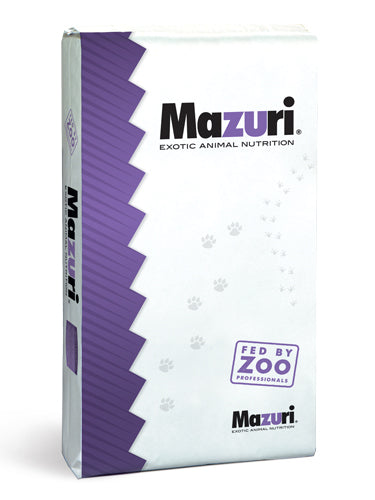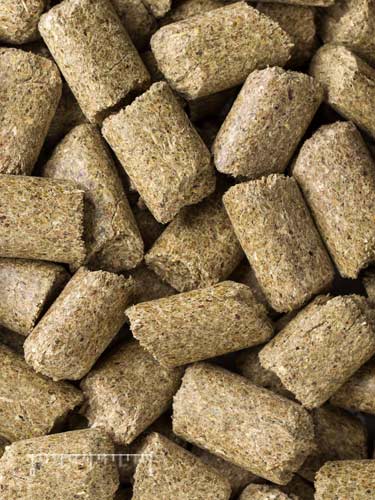Every exotic animal deserves the right nutrition
|
Crude protein not less than Crude fat not less than Crude fiber not more than Ash not more than Calcium not less than Calcium not more than Phosphorus not less than Sodium not more than Copper not less than Selenium not less than Selenium not more than Zinc not less than Vitamin A not less than |
14.00% 2.00% 15.00% 9.00% 0.45% 0.95% 0.65% 0.65% 40.00 ppm 0.50 ppm 0.60 ppm 300 ppm 4000 IU/lb |
Ground Oats, Wheat Middlings, Dehydrated Alfalfa Meal, Oat Hulls, Linseed Meal, Dried Beet Pulp, Dehulled Soybean Meal, Salt, Dicalcium Phosphate, Calcium Carbonate, Magnesium Oxide, Pyridoxine Hydrochloride, Menadione Sodium Bisulfite Complex (source of Vitamin K), L-Ascorbyl-2-Polyphosphate (Stabilized Vitamin C), DL-Alpha Tocopheryl Acetate (Form of Vitamin E), Folic Acid, Choline Chloride, Vitamin B-12 Supplement, Cholecalciferol, Biotin, Thiamine Mononitrate, Vitamin A Acetate, Riboflavin Supplement, Calcium Pantothenate, Ethoxyquin (a Preservative), Nicotinic Acid, Manganous Oxide, Zinc Oxide, Ferrous Carbonate, Copper Sulfate, Zinc Sulfate, Calcium Iodate, Cobalt Carbonate, Sodium Selenite.
- Feed alongside daily roughage allowance.
- Feed 1 kg per 100 kg of animal bodyweight per day during the winter, then reduce the amount fed to 0.5 kg or less per 100 kg of bodyweight during the summer.
- Always provide plenty of fresh, clean water.
- Thoroughly wash feed and water bowls on a regular basis. It is always good practice to wash hands thoroughly after feeding and/or handling animals.
- This diet is not for human consumption.
Caution: Follow label directions: Feeding added selenium at levels in excess of 0.3 ppm in total diet is prohibited.
Ask Our Experts
Get nutrition advice you can trust from experts who understand the unique nutritional needs and behaviors of your exotic animals.
Get Advice
